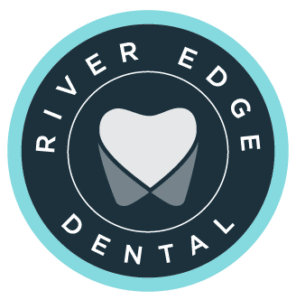When you are in our office, we will take good care of you. But what about when you get home – how do you care for your dental work after treatment? Here are some general guidelines, although you should consult with our team for specific instructions if you have received any of the following:
- Dental Implants
- Orthodontics
- Socket Graft
- Endodontics (Root Canal)
- Scaling & Root Planing
Anesthesia: If your dental treatment was accompanied by anesthesia, you will still be numb after leaving our office. It is important not to chew any food or drink any hot liquids until the numbing has gone away completely. You can easily bite your lip or burn yourself.
Discomfort: If you had a filling placed or had a tooth prepared to receive a dental crown, it’s normal to feel some discomfort in your treated tooth or teeth. This should be controllable with over-the-counter medications like acetaminophen (Tylenol) or nonsteroidal anti-inflammatory drugs (NSAIDs). NSAIDs like ibuprofen (Advil or Motrin) or naproxen (Aleve) may be better because they reduce the swelling of the tooth pulp, which is partly responsible for your soreness. If discomfort continues after the first week, becomes more intense, or isn’t controlled by over-the-counter medication, please contact us.
Sensitivity: It’s normal to feel sensitivity to heat, cold, and pressure after having a cleaning, getting a filling, or receiving a dental crown. The cause is similar to the cause of the discomfort, an inflamed tooth pulp that is sensitive to many external stimuli. Cleanings can cause sensitivity because they can remove tartar that might have been covering exposed roots. Sensitivity will pass as your gums recover.
Fillings: Except for sensitivity, fillings are ready to be chewed on as soon as you leave our office. This applies to composite tooth-colored fillings. These are fully hardened and bonded before you leave our office. For ceramic fillings, we may recommend that you avoid chewing on the inlay until the cement has fully hardened (perhaps 24 hours).
Temporary Restorations: If you have a temporary dental crown or inlay, it’s important to treat it gently. It’s not designed for long-term wear, and it may not last until the permanent one arrives if it’s not treated with care. Avoid eating especially hard food, chewy food, and sticky food. You might even try chewing on the other side of your mouth. Floss around temporary crowns with care to avoid dislodging them.
Contact us if your temporary restoration comes off.
Uneven Bite: If you feel you have an uneven bite after your restoration, it’s important to give your bite time to adjust. If you had a damaged tooth or an uneven bite before treatment, changing your bite to normal and healthy can feel a little weird at first. In addition, the process of getting anesthesia can cause your bite to feel a little off when the anesthesia wears off.
If this feeling persists after the first day or so, please contact our office.
Care Of Restorations: Once you get your permanent restorations, it’s important to take good care of them. Avoid using your teeth for tasks other than biting or chewing food. Depending on the composition and design of your restorations, there may be additional restrictions on what or how to eat, and we may ask that you not chew on the new dental crown until the cement has hardened. It’s important to brush and floss normally. Brush twice a day and floss every day. We will let you know if your restorations will benefit from any additional changes to your oral hygiene routine, such as using a different style of toothpaste.
Contact us if your restoration breaks or comes off.
Questions: If you have questions about anything not covered above, please contact us today to ask questions or schedule an appointment with a River Edge Dental dentist in River Edge, NJ.



